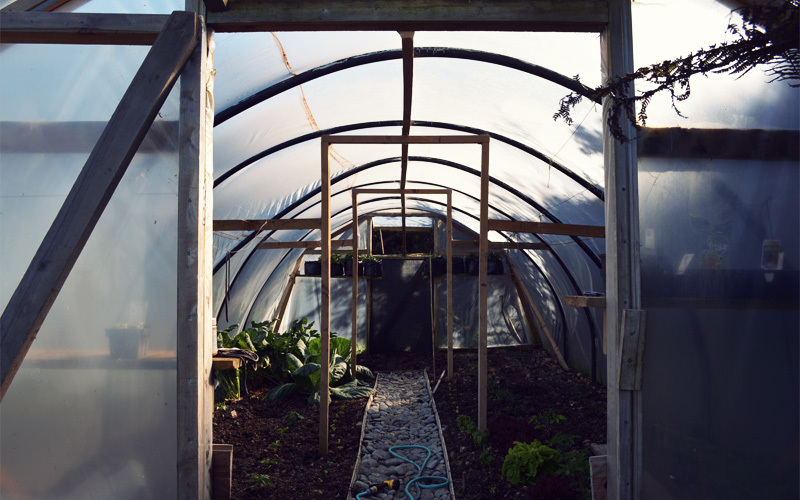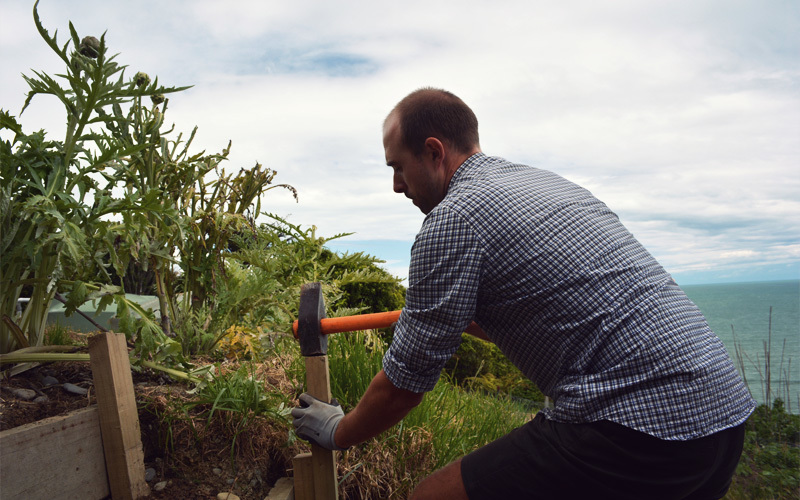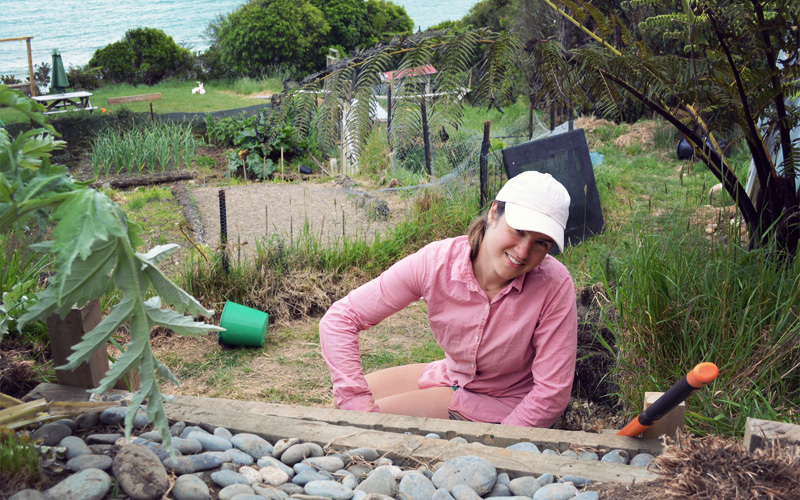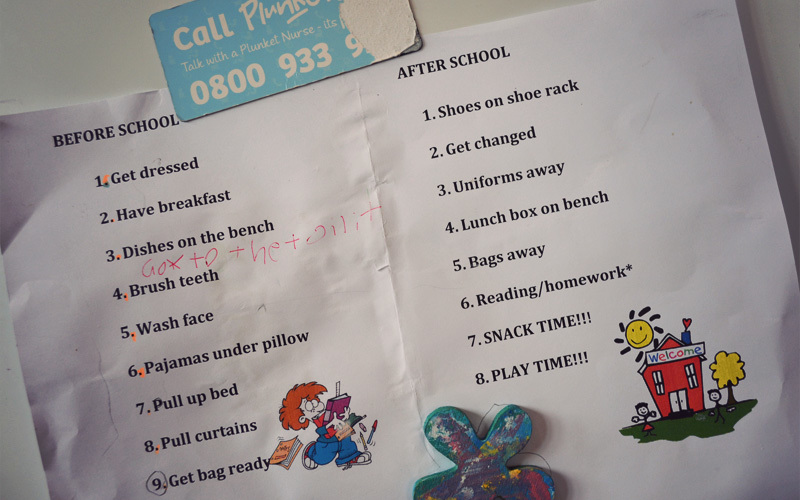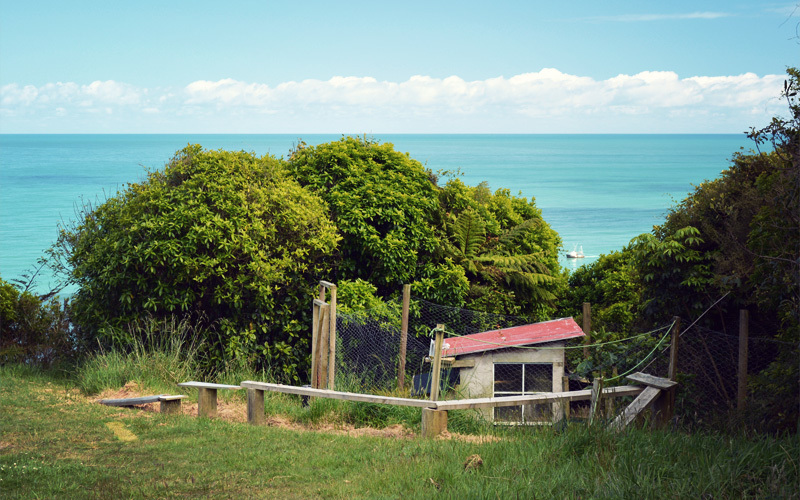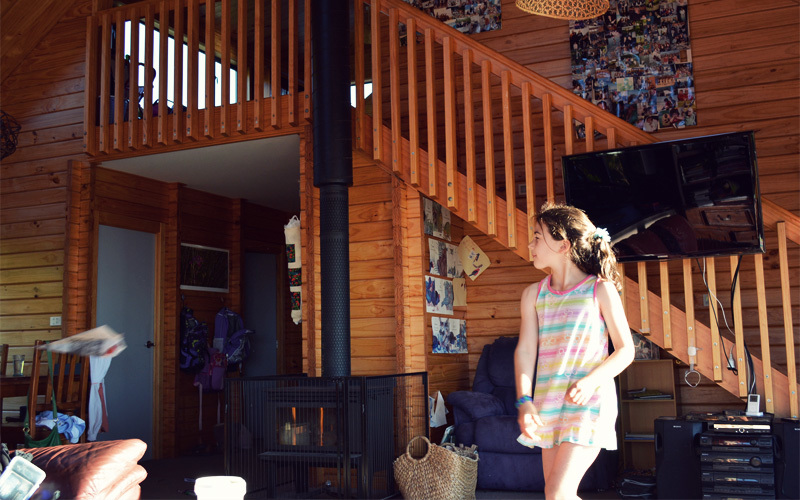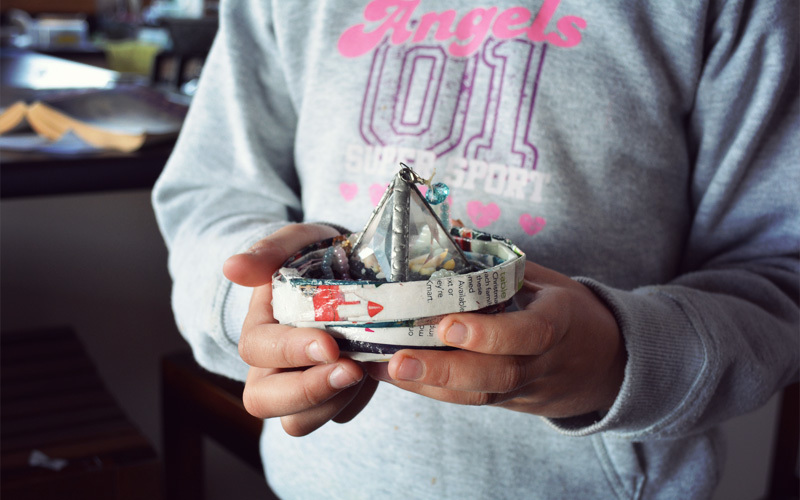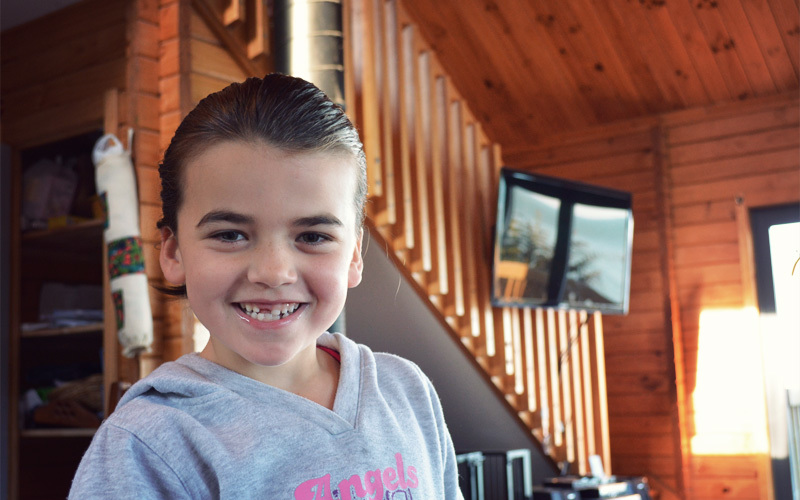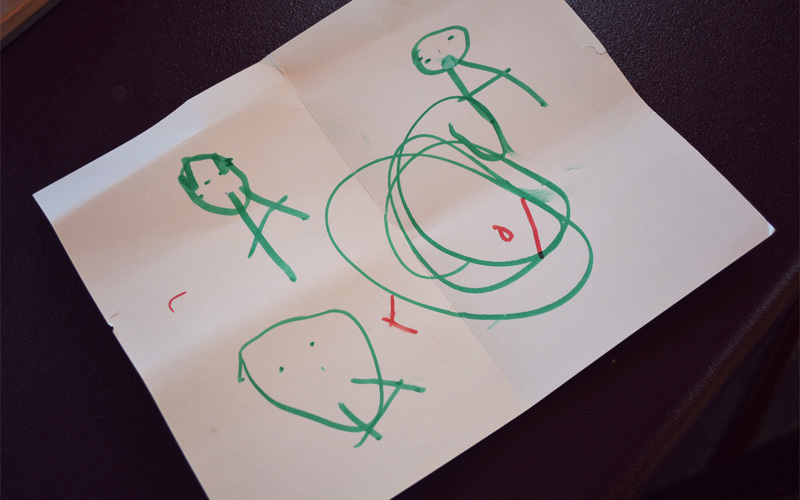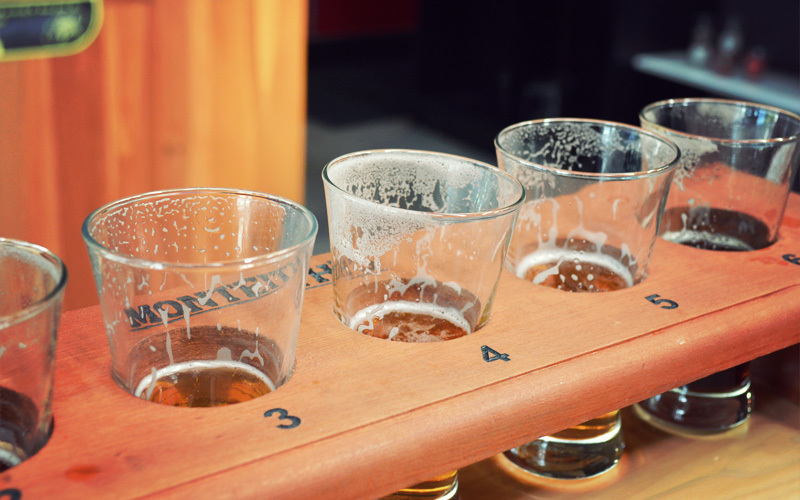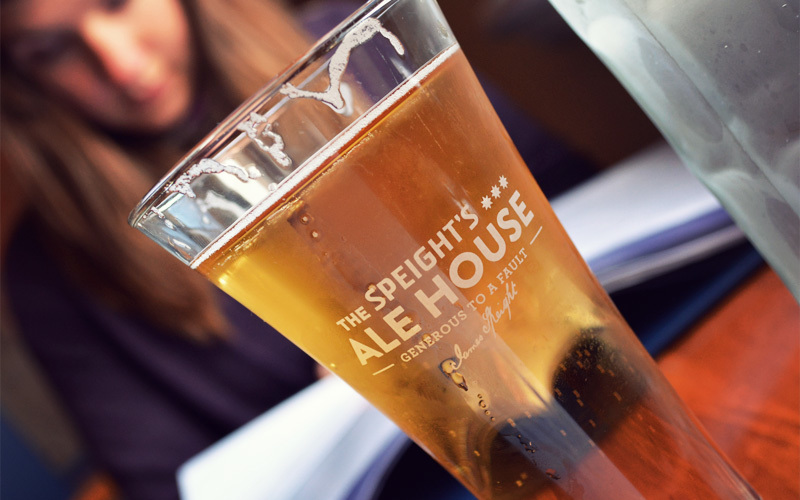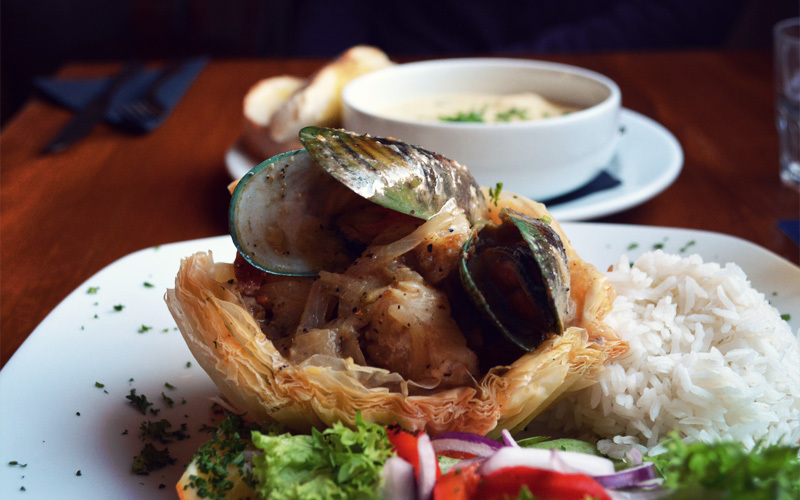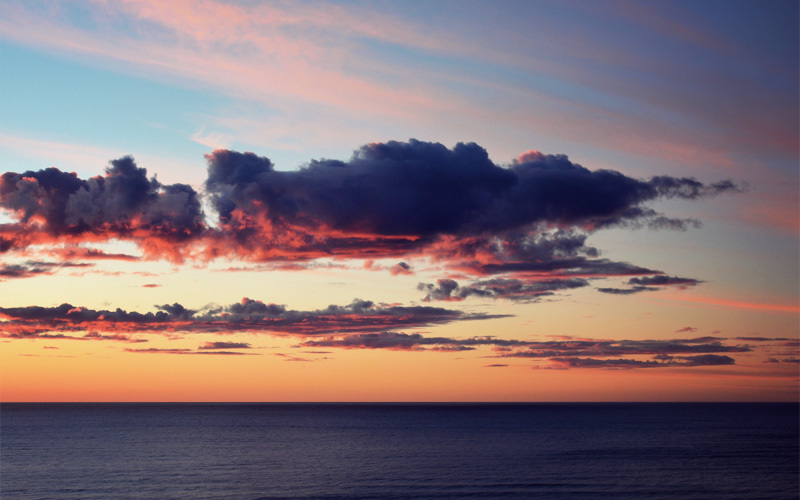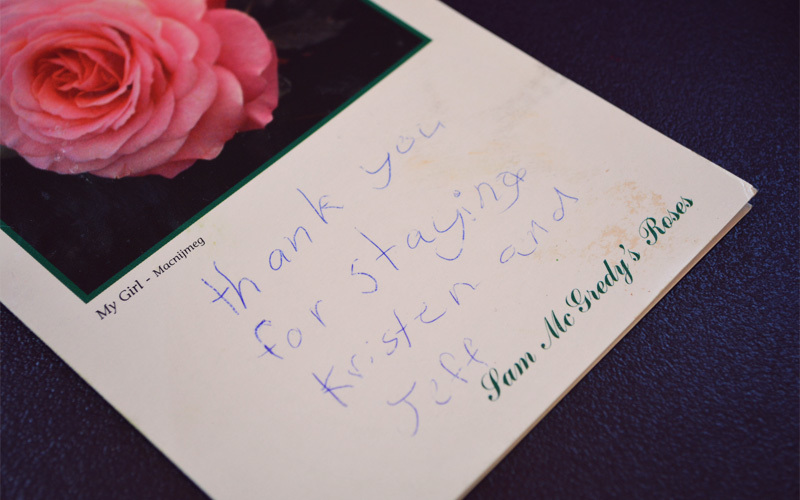November 3, 2014
Days 69-73: Greymouth, NZ
On Monday morning we ride half a dozen miles north from the depressing but intensely profitable holiday park into the teeth of a frigid headwind that threatens to push us down the coast in reverse. After climbing up the steepest sustained hill we've ever seen, we arrive on the doorstep of a modest-sized single-family home. Out back, on a terraced slope that heads down toward the sea, are a series of gardens, a greenhouse, a large enclosure for chickens, a sandbox, a few benches, scattered children's toys, and a network of wandering paths that connect them all. It's our new home and our new work site.
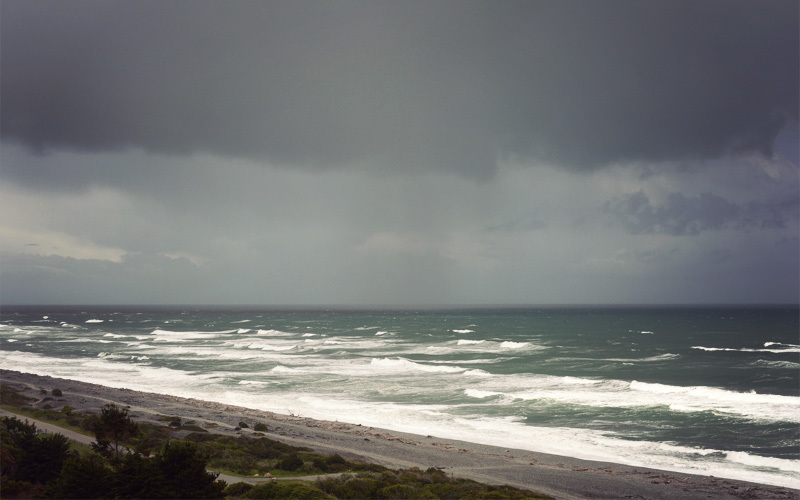
| Heart | 1 | Comment | 0 | Link |
Kristen learned about the place through an organization known as Worldwide Opportunities on Organic Farms (WWOOF), which connects people interested in volunteering their time and energy in exchange for room and board and the opportunity to learn more about what's involved with planning, building, and maintaining an organic farm. Although some WWOOFing hosts have large-scale operations and may sell what they grow or raise for profit, many are more modest in scope, and center around a family generating food and animal products at a level that helps them become more self-sufficient and less reliant on mass-produced goods.
The following morning, and for the next three mornings that come after, we head outside after we finish breakfast and get to work. I ask Kristen to share her thoughts about what we're experiencing, and this is what she writes:
It’s a beautiful, sunny day on the West Coast Region of the South Island of New Zealand. The sound of the Tasman Sea and cheeky mutterings of weka birds looting our dirt piles for worms accompany us as we put our backs and arms to work for the first time since we began this cycling journey. We sweat and grunt and stumble and curse. But by the end of the day we feel a sense of accomplishment. No, we haven’t biked dozens of miles or climbed thousands of feet, but we can look upon the the work we've done, see the physical results, and imagine the benefits to come.
We dug holes. But we didn't just dig holes. We gained knowledge of different soil types (mostly clay and sand). We had up close encounters with local insects and became aware of how much a part of the whole system they are. We learned about new types of food and where it comes from. We made a space for future feijoa fruit trees that a family will harvest and enjoy. We rebuilt a set of stairs, applying such skills as sawing, leveling, and lots of pounding. At the end of each day this librarian and web developer walked away from a job well done, secretly hoping we added enough poop to make the holes fertile for growing new trees and that the stairs don’t slide away during the first good rain.
But in this case, our time on the West Coast of New Zealand is about so much more than work. We find ourselves welcomed into the home shared by Phaedra and Tim and their three daughters, Dakota (age seven), Indi (five, but quick to point out that she's turning six in two weeks), and Aali (just turned three). If a pair of strangers from a different country showed up in our houses back when we were kids, Kristen and I would have been painfully shy around them, unsure of what to say or how to act, and would have wondered what the hell our parents must have been thinking. But because Phaedra and Tim have welcomed several dozen WWOOFers into their home over the past few years, our presence there seems as normal to the kids as going to school or brushing their teeth or eating vegetables straight out of the ground in their backyard.
In what seems like no time at all, Team Hawthorne joins with the girls to create little bowls made of intricately folded magazine pages that are held together with Mod Podge. We build paper airplanes and try to figure out which type flies the farthest. We find out that we slept through a delivery from the tooth fairy, who deposited $3.10 beneath Indi's pillow. At the dinner table we hear about what the girls did at school that day, listen to and laugh at their jokes, and feel kind of silly when we realize that we're now old enough that we don't have a stack of jokes stored in the front of our minds, ready to be unleashed at any time. We contribute answers to important round-the-table questions, like What's your favorite kind of fish? and If you could be any kind of animal, what kind of animal would you be? When the living room becomes a stage for dance routines, we become the applauding audience. It's every bit as endearing as you could imagine.
We wake up in a soft bed listening to the sounds of the family below beginning their morning. It’s going to be a day of tree trunk hauling and relocating native coastal grasses to a slope so the roots will naturally reinforce the ground. We’ll eat eggs as fresh as you can get them, play games with three happy, smart, and creative kids who are very lucky to be growing up in such a place, and air out our tent in the sweet, salty breeze, ready to be packed up and put back on the bike for our next destination. We've been given so much from our WWOOFing hosts, but most of all their generosity.

| Heart | 1 | Comment | 0 | Link |
On Thursday night, after a long day of stair-building, we clean up, change into the only clothes we have left that are still clean, and ride our bicycles into Greymouth for a few hours. For the first time since leaving Portland more than ten weeks ago we go out on a date, which includes a beer and cider tasting at Monteith's, who have been brewing the stuff on the West Coast since 1868. We also eat out at a proper restaurant, not a takeaways, for the first time in almost a month. Back at home, within the context of a more routine, more stable, more typical adult life, these kinds of evenings — or some variation on them — were common. Being young non-homeowner, non-parents in a city like Portland, we went out like this two or three times during a normal week. Now we spend so many hours on the road, tearing through countless tubs of peanut butter and jelly, wearing strange-looking and strange-sounding clothes, and sleeping on the ground while using a towel as a pillow, that even one night resembling the sort of things we used to do without even having to think about them in Oregon feels like the pinnacle of luxury.
It's all part of keeping our spirits high and our bodies and minds fresh, to which Kristen adds:
There are many reasons we wanted to get off the bikes for a while to WWOOF. We wanted to experience a more in-depth cultural immersion, to get past the kind of surface questions we ask and answer so often and really get to know a family and their way of life in a country that's still so new to us. We wanted to learn the trials and triumphs of turning a piece of land into something that will produce food for your family. We also welcomed the chance to rest our legs and work our comically weak upper bodies, and to have a break that could rejuvenate us. After a week of not riding, I’m very ready to get back on the bike!

| Heart | 1 | Comment | 0 | Link |
I'm ready as well. The West Coast, the fjordlands, rugged plains, and sandflies hungry enough to devour us whole await!
Today's ride: 17 miles (27 km)
Total: 2,340 miles (3,766 km)
| Rate this entry's writing | Heart | 3 |
| Comment on this entry | Comment | 0 |
